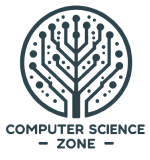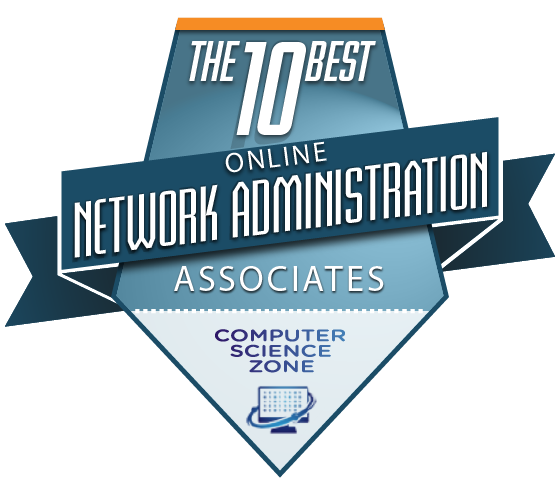
Modern business flows through digital networks. They allow instantaneous communication, the lifeblood of profit and organizational success. Someone has to build and run those networks, and protect them from a external threats, insecurities and logistical issues. Network or System administrators make sure computer networks are up to date, working well, and are protected from attacks or exploitation. Large organizations, corporations and governments need multiple computers, systems, and software to operate. A network administrator works to coordinate these and more. Many organizations are just realizing they need to invest in network administrators, and IT/Cybersecurity positions are flooding job markets, with limited numbers of qualified applicants. This leads to high wages, job security and exciting opportunities. According to the U.S. Bureau of Labor Statistics, the number of jobs available for network and computer systems administrators is expected to increase by 6 percent through 2026. They also found the median annual wage for network and computer systems administrators was $81,100 in 2017. If you’re looking to enter this field and begin working quickly, or build off a foundational education, a Network Administration Associate’s is a great place to start. It’s affordable, can be completed quickly, and often gets you ready for vital certifications within the field. And earning your Associate’s online is a great way to meet your work/life responsibilities, improve your career options and pay less time and money to earn your degree as well. An Associate’s in Network Administration will give you a great head start in the IT and computer science fields. This ranking was designed with the following methodology:
-
- Affordability (1/3): the overall average cost of the program for out-of-state students, per credit hour; other fees not included.
Flexibility (1/3): the makeup of the program: fully online, hybrid, or class-based learning with online features.
- Academic prestige (1/3): the strength and reputation of a given program according to other prominent rankings like US News & World Report.
1) Gulf Coast State College
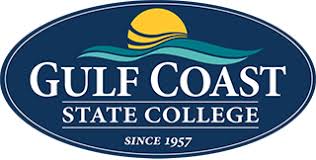
Gulf Coast is a community college based in Panama City, Florida. It was founded in 1957 by the Florida Legislature, and is a member of the Florida College System. Students can earn associate’s and bachelor degrees at Gulf Coast. Nearly 5,500 students attend Gulf Coast, which has a 18:1 student-to-faculty ratio. It’s also the least expensive school on this list, AND 82% of its full-time students receive financial aid. Gulf Coast’s two options within Network Administration also increase its value, landing it at #1 on the ranking.
Gulf Coast offers two Associate programs in Network Systems Technology. The first is a Network Server Administration Option, which focuses on the functional skills needed to manage and maintain servers. Sample courses include Wireless Networking, Virtual Infrastructure: Installation and Configuration, and Advanced Router Tech. This program also covers some Cybersecurity courses that appear in the latter option. The second is a Network Security Option, focusing on protecting servers and data. This is a great way to begin an educational track into Information Assurance/Cybersecurity, a swiftly blooming field with lucrative opportunities and far too few qualified applicants. Sample courses include Encryption & Cryptography, Network Defense and Countermeasures, and Computer Forensics & Incident Response. Both options also contain course sequences from top certification organizations like CompTIA, CISCO and more.
- Cost Per Credit Hour Rank: 1st-$133
- Flexibility Enhancing Feature: 2 options
- Homepage
2) American Business and Technology University
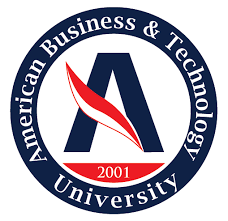
ABT University is a technical university that operates online. It was founded in Missouri in 2001 by Sam Atieh, a writer and online learning enthusiast. In 2002 it became the first school in the state to offer degree programs online. The school started offering retraining services, but now conveys certificates and undergraduate and graduate degree programs in Business and IT Technology. ABT is a small school, with just over 320 students and a 10:1 student-to-faculty ratio. 55% of its full-time students receive financial aid.
ANT offers an Associate of Applied Science (AAS) in two concentrations: Network Administration & Information Security and Computer Programming & Systems Design. It can be completed in 30 months and requires 60 semester hours. The total cost for the program is $17,440. Both concentrations introduce concepts like “hardware, business and productivity software, operating systems, networking, programming, and information security, and reinforces concepts and techniques through practical application.” Once again you have a choice of pursuing programming and systems themselves, or the upkeep of a network and maintaining its security. Students will be prepared to sit for three CompTIA certifications.
- Rank: $290 5th
- Feature: Two options
- Homepage
3) Rasmussen College

Rasmussen is a private, for-profit business school that was founded in 1900. It has built 20 campuses across the country, and a robust online wing, which was founded in 2002. The school has graduated over 100,000 students. Rasmussen offers students more than 70 programs. Their programming is separated into seven schools: Health Sciences, Design, Business, Justice Studies, Education, Nursing, and Technology. Rasmussen is accredited by the Higher Learning Commission (HLC), the regional accreditor serving Minnesota. Over 13,500 students attend Rasmussen today. Rasmussen is committed to working with students to find a way to finance their education, whether through loans, scholarships, grants and credit transfers.
Rasmussen’s offers a Network Systems Administration Associate’s Degree. It gives you the keys to the skeleton of IT which includes systems analysis, network analysis and network and computer security. It’s fully online, but students will still work closely with industry hardware and software while learning networking and network maintenance, operations and network security. Rasmussen’s graduates have gone on to work at Best Buy, Microsoft, Target, Wells Fargo, Ikea, State Farm, Verizon and many other luminaries within the technology sector. This degree can be earned in as little as 18 months. It utilizes FlexChoice®, which lets students save on tuition with self-directed assessments and traditional courses to earn a degree with greater flexibility. It also prepares students to sit for the Cisco® CCENT, CompTIA® A+ (parts 1 and 2), CompTIA Linux+, CompTIA Network+, and CompTIA Security+ certification exams.
- Rank: $300 6th
- Feature: Course plan customized for you and accelerated classes.
- Homepage
4) Lake Superior College
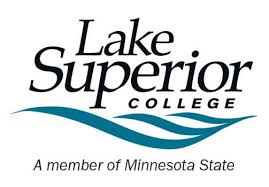
Lake Superior College (LSC) is a two-year community and technical college in Duluth, Minnesota. Nearly 4,800 students attend LSC, which has a 21:1 student-to-faculty ratio. 79% of its full-time students receive financial aid. LSC offers pre-baccalaureate majors to help students get credits they can transfer to 4-year schools, but also have over 90 certificate, diploma and degree programs in career and technical fields. LSC is proud of its Continuing Education/Customized Training division which works with area businesses and industry to build opportunities for entry-level and advanced education. The school offers over 150 courses online. Recently, over 25% of credits conferred by LSC have been delivered online and it’s offering more programs completely online.
Lake Superior offers an AAS in Network Administration & Cybersecurity. It prepares you to get CompTIA, Cisco CCENT, Microsoft MCP, or EC-Council Certified Ethical Hacker (CEH) certified. You’ll also learn the ins and outs of networking, hardware installation, software configuration, management for computers, routers and networks, designing systems and networks, and much more. Lake Superior has a Center for Cybersecurity that was created, “to provide a broad range of system security and information assurance services for local businesses and the community at large. The Center will provide students with real-world learning experiences in cybersecurity education through several business and government partnerships.” This is a great feature and extremely helpful for finding a job in Cybersecurity. The program takes two years to complete and costs approximately $15,000.
- Rank:$203 3rd
- Feature: As of Fall 2018, LSC will charge the same tuition regardless of where students are located.
- Homepage
5) Madison Area Technical College
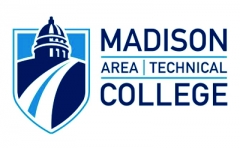
MATC is a technical and community college centered in Madison, Wisconsin. It serves students in parts of 12 counties in south-central Wisconsin: Adams, Columbia, Dane, Dodge, Green, Iowa, Jefferson, Juneau, Marquette, Richland, Rock, Sauk, and everywhere online. Over 15,600 students attend MATC, which has a 12:1 student-to-faculty ratio. The school offers classes online, accelerated (6-week), compressed (8-week), and through a hybrid format. It was founded in 1912, initially offering vocational education, citizenship, and homemaking classes. Now it offers 175 associate degrees and technical diploma programs, trade apprenticeships and other certifications.
MATC’s Information Technology-Network Specialist AAS program will get you ready to “administer, install, maintain and troubleshoot data and voice networks.” Students will gain an understanding of Local Area Networks (LANs), Wide Area Networks (WANs), and how they work with nodes, servers and other end user devices in networks. Students will also get hands-on training in network operating systems, user administration, network security, network design and implementing voice over IP (VoIP), in addition to managing Network Operating Systems (NOS) and client software, network security measures, user accounts, and network event logs for problem resolution. Students will be prepared to sit for several Windows, CompTIA and Cisco certifications, among others. This program is aimed at getting you into a Bachelor’s program and/or a good job upon graduation.
- Rank: $201 2nd
- Feature: Accelerated course structure
- Homepage
6) Seminole State College of Florida
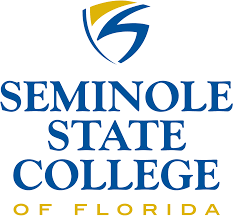
Seminole State College of Florida is a public state college. It has four campuses in Central Florida. It’s the eighth-largest member institution of the Florida College System, with over 1,700 students and a 22:1 student-to-faculty ratio. It was founded in 1965, of courses via distance learning. In 2006, Seminole Community College partnered with the University of Central Florida to launch “DirectConnect to UCF.” The program guarantees graduates of SCC get admitted to UCF, and gives students academic advising from university counselors. SSC also offers 39 online degree and certificate programs, including five online baccalaureate degree programs.
SSC offers and Information Systems Technology AAS, and a Network Systems Technology AAS. The former comes in Networking, Programming, and AS to BS (IST) specializations. The latter is offered with CISCO Network Infrastructure, Network Operating Systems, Security and Virtualization specializations. In the Network Systems Technology program you’ll learn to administer, design, install, configure, connect, plan and maintain local area and enterprise networks. And in the IST program you’ll supervise and set up local and wide area networks, and emphasize creating and maintaining database objects used to store, retrieve and manipulate data. Students will also be prepared to earn their Bachelor of Science in Information Systems Technology.
- Rank: $381 8th
- Feature: Guaranteed acceptance to University of Central Florida when accepted to SCC
7) Dakota State University
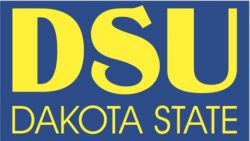
DSU is a public university. It was founded in 1881 in Madison, South Dakota. DSU is known for their graduate and undergraduate programs in computer science, business, education, natural sciences, liberal arts and more. Its motto is, “Technically, we’re better.” There are nearly 3,200 students (17:1 student-to-faculty ratio), and most students take their classes primarily online. In 2013, DSU ranked 4th among online schools in the United States on Guide to Online Schools’ rankings that year. It also tied at #32 among top public schools in the 2017 U.S. News & World Report’s midwest rankings.
DSU offers a Network and Security Administration (AS) online. It’s perfect for students who want to gain knowledge and skills in network and security administration and begin working as soon as possible. Students will learn basic security, systems and networking fundamentals. Classes are kept small, with generally 25 of less students in each class, ensuring hands-on instruction can be closely monitored on an individual level. DSU also offers access to student activities and clubs like the Computer Club or Gaming Club. There are also LAN parties, programming contests, MACSTECH Scholarship opportunities, great research opportunities, and unique virtual and physical labs.
- Rank: $340 7th
- Feature: Virtual labs, and an unusual amount of extracurricular activities.
8) University of Toledo
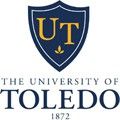
U of T is a public research university in Toledo. It was founded in 1872. Toledo serves over 20,600 students and has a 21:1 student-to-faculty ratio. Students can access more than 250 academic programs through 18 schools and its online division. U of T is a big proponent of undergraduate research, which builds essential skills that cross most industries. Its undergraduate engineering and business programs are consistently highly ranked by U.S. News & World Report, in addition to its excellent programming in computer science, nursing, pharmacy, physician assistant, law, and education.
Toledo offers an Associate Degree in Computer Network Administration entirely online. It prepares students to work in business and government. Students will leave the program ready to enter the “high-growth computer networking industry.” You’ll learn about operating systems management, programming, networking fundamentals, and computer integration, and graduate prepared for professional certifications from companies like Microsoft, CompTIA and Cisco. Toledo works hard to make sure transferring schools is easy for students who want to go on and continue their computer science education. Students will receive a free evaluation from Transferology.com as part of this effort.
- Rank: $420 10th
- Feature: Help transferring to a next program
- Homepage
9) Central Texas College
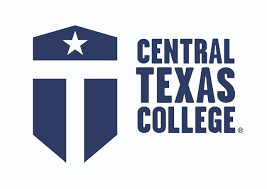
Central Texas College is a community college based out of Killeen, Texas. It also has branch campuses in Europe. CTC serves over 18,100 students, and offers a 16:1 student-to-faculty ratio. It offers students access to Associate of Arts degree programs, Associate of Science degree programs, Associate in Applied Science degree programs, or Associate of Arts in General Studies, and over 40 certificate programs. For decades CTC has worked alongside US military members, and offered them programs around the world.
CTC offers a Network Systems Administrator AAS. It requires 60 credit hours, and can be completed in two years of full-time study. Students will learn to safeguard networks, make sure traffic runs smoothly and uphold reliability and security. You’ll be prepared for a number of lucrative positions, where you’ll install, configure, support and monitor a local area network (LAN), wide area network (WAN), Internet systems or part of a network system. Sample classes include Supporting Network Server Infrastructure, Web Design I, Project Management Software, and Firewalls and Network Security. This program also features an option for an Internship for credit in Computer Systems Networking/Telecommunication, or students can opt for classes that fill that void.
- Rank: $235 4th
- Feature: Internship or classes for credit.
- Homepage
10) University of Phoenix-Arizona
The University of Phoenix is a private, for-profit university, operating from Phoenix, Arizona. It has been downsizing, and there are no current and accurate estimates of its student body and faculty. It was established in 1976, and became a behemoth in online education. It features an open-enrollment admission policy, so students need only a high-school diploma, GED, or equivalent to attend. Phoenix offers 100 degree programs at the associate, bachelor’s, master’s, and doctoral degree levels in schools of Advanced Studies, Business, Security and Criminal Justice, Education, Humanities and Sciences, Information Systems and Technology, Social Sciences, Health Professions, Nursing and Health Services Administration. In December of 2016, the US Department of Education approved the sale of Apollo Education Group, which owns UOPX for $1.1 billion to a group of investors that included the Vistria Group, a private equity firm run by Marty Nesbitt, friend of President Obama’s. It’s online Bachelor’s programs have been ranked tied at 193rd by U.S. News & World Report.
Phoenix offers an Associate of Arts concentration in Information Technology with Network Support Certificate. It requires 60 credits. The program focuses on teaching you how to build and support networks to keep an organization’s computers safe and interacting. You’ll learn how to install, configure and support local and wide area networks, and the ins and outs of network monitoring, website performance testing, network environment management, network security measures and much more. This program also comes with a certificate option, but both programs allow you to take courses that give you skills employers desire earlier, so you can show employers how competent you are before you graduate. Sample courses include Information Systems Security Concepts, Foundation of Local Area Networks, Wireless Networking Concepts, and more.
- Rank: $398 9th
- Feature: Enrollment representatives help you enter the program and plan how it can build your career.
- Homepage
